A Simple Guide to What is Personal Development – With Tips, Ideas, and Reality Checks
What is Personal Growth?
To me, every opportunity seems like a time to learn and improve upon. When my host in Chiloé cooks trout on the wood fire and when streetwalkers here in Shimla (Himachal) don’t smile back at me, I perceive both occasions as a new way to life.
I can either pick that unknown skill or method of reciprocation or I can be resilient and fall back to my old methods of grilling trout on coal and smiling at everyone. But the knowledge there exists a style separate from mine is enough to tempt me(us) to try new ways.
What is personal development? – Personal Growth is defined as evolving and maturing as we move along in life. It is about becoming better, more fulfilled, self-assured, and resilient human beings. People who focus on self-growth reflect on their behavior. They see what they could have done better. They want to know the secrets of a happy relationship, care about building strong and stable friendships, and are eager to know when and whom to cut back.
Failures aren’t obstacles for self observers, they are ways to move ahead. Personal growth lovers make goals for themselves and assess their progress against these targets instead of getting demoralized over every setback, standard benchmarks, or someone else’s success. Instead of judging people they take a step back and realize what they are looking for in others is what they want in themselves. People inclined towards personal growth are open to looking at new ways to living and communication.
The meaning of Personal development can be many. But learning who we are, feeling okay about it, and improving upon ourselves form the core of self-development.

The more we read about personal growth the more we develop the need to change. Today the internet talks about personal improvement in a way it was never spoken of before. But when did people start thinking about personal growth as a separate entity outside us — rather than it being a part of living every day?
When it comes to personal growth and development, the East and the West are separated by a wide valley. Let us look at the different perspectives to understand how people perceive growth.
During my childhood at my parent’s home in a small town in India, we never focused on growth as a separate task to do. We had to adhere to some premeditated ideas on how a person should behave and be — no questions asked.
-> We go to bed by 10 and rise early; every task is better done the earliest; we study hard; we pray; good performance in tests isn’t necessarily rewarded with playtime or pastries but with a serious monologue on why education is important (as I detail in this article on changing careers, some Indian students can only find a way via education so the obsession is justified);
-> We shouldn’t think too much but be happy; we shouldn’t laugh out loud; we don’t do anything just for fun, going out with friends is a no-no; we don’t watch television all-day long; we focus on what’s important rather than squandering away our time;
-> We are good human beings who behave appropriately all the time and do what’s important rather than just being.
This is a long (but still incomplete) list of etiquettes, priorities, and ways to be. So I won’t say we — Indian children — didn’t get instructions from our home on what’s right and wrong. But this instruction manual written down — I guess, generations before — was incomplete, and, at points, inaccurate. And like in those schools and education systems where scores were cut if you write a different answer from the one the teacher taught in the class, not adhering to these instructions could get you in trouble.
Given how deep-rooted these cultural principles were, they, though belonging to a collectivist society, were mapped onto individuals. We were advised against building our beliefs, principles, and learning methods. Do it because I have asked you so. Of course, you are a grown up now so you will find faults in all our ideas.
Instead of questioning everything and forming opinions, we were encouraged to obey our parents and elders.
Sometimes we were treated as adults without being given the right guidance because we were expected to follow the rulebook, which had it all. Once I remember thinking that a teacher must have contacted me for some personal favor he needed from me. My parents were surprised by my idea. They laughed at me but neither did they correct me nor advised me on ways to approach the situation.
Pointing to a frog or a fenugreek plant we could ask who is this and what is that. But unlike (most of the) Western society, most Indian (and I guess Asian) children were neither encouraged to learn by experience nor allowed to reason beliefs. Maybe our parents, extended family, neighbors, and teachers had too much to deal with. Or, perhaps, they were also taught by the method of enforcement rather than curiosity and query.
A report on the difference in upbringing between the East and the West by The Conversation says, “Cultural differences in interactions between adults and children also influence how a child behaves socially. For instance, in Chinese culture, parents interact with children in a more authoritative manner and demand obedience from their children. Children growing up in such environments are more likely to comply with their parents’ requests, even when they are reluctant to do so. And children in the Western world question their parents’ authority more.”
Early exposure affects the way children form their self-image and identity0. The report highlights how the Western European and North American children tend to describe themselves around their unique characteristics highlighting their personal needs, self-image, feelings, and opinion— such as “I am smart” or “I am good at drawing”. And Asian, African, Southern European, and South American children describe themselves more often around their interpersonal relationships and social roles— such as “I am my parents’ child” or “I am a good student”.
Our cultures strongly affect our self-identity, self-confidence, and curiosity. Now different countries might be converging on personal growth ideas. But personal development or individuality or focusing on the “I” was not a thing while I was growing up in India.
In the absence of attention over self-image and growth, we followed the principles set by our parents and ways to life without ever picking up a theory and shredding it to what it was and why it was so. In many families, the punishments for non-adherence were severe, even harsh beatings sometimes (not in ours), and children knew better than opening about their opinions.
Growing out of this collectivist society, I learned early on that if I had to do something not deemed right by my parents or siblings or society, I couldn’t ask questions (unless I wanted to give away what I was up to). I had to do it in hiding. I also refrained (and still do) from discussing matters of heart, opinion, and identity with my family.
I never spoke at home about how I felt inferior to my friends who always wore better clothes and looked brighter. I couldn’t share with my mother that children in school laughed at me when I auditioned for a group dance and that I wasn’t selected. I never opened up about brooding in the class alone while my classmates prepared for the school Annual Day.
I believed I wouldn’t get encouragement from my parents or they wouldn’t even consider the activity or my emotions worthy of discussing (I was already called an emotional fool for disclosing too much). But because of my absence from almost all extra-curricular activities, I lost confidence. I started believing I was a failure beyond studies.
Later when I studied in Kota and Delhi, my phone calls back home were only about the rank or marks I scored in tests and if I was eating well and so and so. I couldn’t mention I bicycled at night or how the competition made me claustrophobic at times or that I didn’t play at all anymore.
While not being able to share most of my life with my parents, I thought it was a crime to feel good, go out for fun, hang out with friends, dance, laugh, push away studies sometimes to just be, and not focusing on what’s important all the time. As I explored life away from home in a new city with new people from new backgrounds, I didn’t know how to interpret embarrassment, mockery, exclusion, teenage problems, fear, grief, and other turmoils of regular human life. (And now I write about understanding our emotions extensively.)
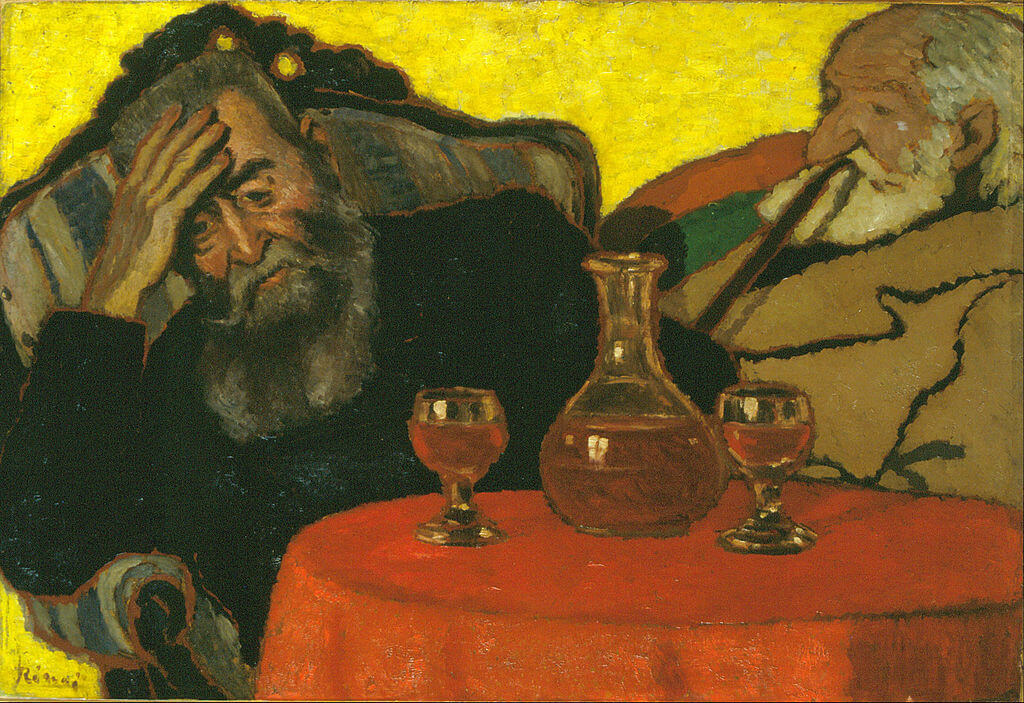
Clearly, the journey of personal growth was unknown to me for the longest time. I didn’t even try to put my thoughts together on the matters that confused me as if I was even scared to think of things, as if someone would hear my thoughts.
But I did, however, try fixing some obviously wrong aspects of me. When I saw I was driven by selfish motives often, I started placing others above me. When I realized others could get hurt or punished due to my actions, I stepped back and wondered how I could cause the least pain to anyone exterior to me. I focused more on how to make someone happier rather than finding faults in them.
Despite my awareness, the complexes I collected during childhood still haunt me whenever I try to learn a new skill or explore an unknown path. But I acknowledge these mental hurdles and push myself past those fears.
This defiance to not compromise with whatever we have become and how much we know and what all we have done is personal growth. The defiance doesn’t demonstrate anguish, but suggests methods to move further despite the blockades.
Like mine, everyone’s personal development journey is different. Some say they don’t need any change or they are either too old to learn new ways or too perfect. Many don’t know personal development exists. This is how we are, they say. Some are trying to improve but won’t necessarily attribute their changed ways to self-improvement. They don’t even know what habits are. Others already seem to know the best way to operate.
You can see that personal growth is as misunderstood as overhyped.
After all, why should we try to become better? Should we question everything we do? Which parts of us are right and which can be bettered? What are the principles of living well? Is there a universal method to be happy? How can we be successful and fulfilled? How can we be good to others while safeguarding our interests? How to achieve goals? Would there be an end to becoming better?
Constantly engaged in self-improvement we may look as if we are trying to catch our own tail. One rule can’t apply to us all. But we may have some common denominators to achieve happiness, peace, fulfillment, success, and well-being.
And the first rule to personal growth is to stop blaming our parents and the system for all that is wrong.
Our parents are simple beings trapped in their own biases. They themselves are struggling with their childhood fears and prejudices, and all they did is perhaps their best. So you can let them go off the hook, but not before thanking them for bringing you into the world.
As Alain de Botton writes in the School of Life, “We can develop a sad but realistic picture of a world in which sorrows and anxieties are blindly passed down the generations. The insight isn’t only true with regard to experience; holding it in mind will mean there is less to fear. Those who wounded us were not superior, impressive beings who knew our special weaknesses and justly targeted them. They were themselves highly frantic, damaged creatures trying their best to cope with the litany of private sorrows to which every life condemns us.”

Finding Our Definition of Personal Development
Good health, stable relationships, family support, leisure and fun, rising from failures, learning, building a desirable career, being able to go beyond our fears, giving back, good daily habits — are some of the things that give us a sense of well-being and peace of mind while maintaining our financial, family, and personal records right.
Each one of us cares about different things. While you might not want to have company for dinner every day, many of us won’t be happy chewing our bread alone. A lot of people can’t see themselves climbing even two flights of stairs, and the rest love getting some adrenaline high every dawn.
Personal growth plans cannot be universal. Everyone’s personal development is interlinked with their values — their personal circumstances, what they care about, and where do they want to go. My partner may not care about the hike to the seasonal waterfall out of the city. But that same walk could make me happy and content, or the absence of it could impress me that everything is falling apart.
Our struggles, strengths, and weaknesses are disparate.
One of my friends has been sleeping at 10–11 pm and getting up at 6–7 am for years. He finds it hard to stay awake even at weekends or on New Years’ eve. But no matter how much I preach about waking up at 6, at night, occasionally, I get disillusioned into believing I may devour some more pages of the Swann’s Way and postpone sleeping by an hour. Obviously, I can’t get up at 6 and feel disappointed. While I need to be practical about getting up on time, you may not even want to wake up early as you are a Himalayan owl, or cranking like a chicken at 4 am may come naturally to you.
Initially, I thought of self-development as being able to live fully beyond our fears, social conventions, and self-constructed boundaries. Now I consider meaning of personal growth as giving ourselves a chance to arrive where we imagine ourselves to be.
Self-growth is not about becoming universally better, but about sketching one’s own path to one’s aspired destination (or destinations) and then sticking to that path irrespective of the hurdles or the failures on the way.
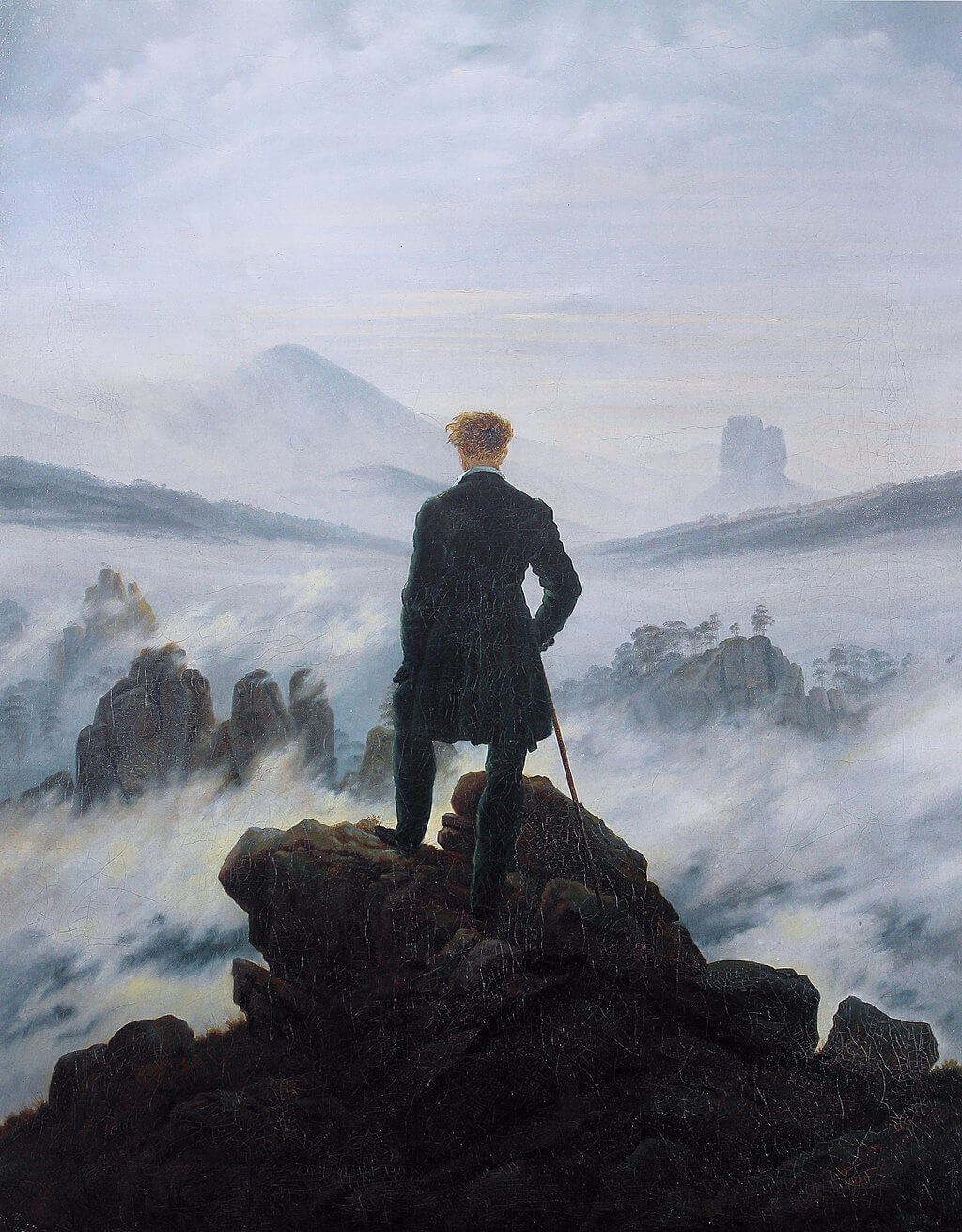
What is one’s aspired destination? The personal growth blogger Mark Manson describes a human’s destination as one’s values. He says we should measure our goals and achievements against our values.
I call personal improvement not running behind others’ goals and clasping to our own sticky notes.
If you aspire to be rich, you cannot pursue your friend’s dream of becoming a digital nomad and a freelance designer. Following her on her journey, you will end up where she wanted to be — not where you wished to be. Five years down the line — when your sole possessions would be your dirty backpack, unlaundered clothes, muddy flip-flops, and a Mac as old as the Neem tree in your parent’s backyard, you will still be unhappy — despite shouldering a volcano erupting of experiences. Not because this life isn’t good (I can tell you this is a pretty darn good life) but because this is not your life.
To achieve your goals (you wanted to be rich, right?), you will have to continue working at your office. Even if that means hiding your friend’s posts from your Instagram feed.
Let us say you worked for ten years and got more than you wanted. Now you have a villa on the Malabar coast, a beautiful husband/wife/human, two furry cats, a BMW, a Mahogany bed from Bali, Kashmiri pashmina, Ladakhis hand-painted crockery, South American woolens, jades from Myanmar, and you know I can go on.
Now the question is — Are you happy?
We prepare towards a summit but when we arrive there a lot of us feel distraught. The things we thought will make us happy may never do. Now hits us the midlife crisis or the senior-life crisis or whatever you may call it.
The digital nomad might also be seriously craving for a home in one of the many valleys she has been wandering yet never feeling fully arrived. No one can dodge the misery of being a human.
What do you do if you are unhappy at the desired vertex?
The idea that our hunger could have an endpoint is delusional. Tell me how many times you reached a contentment plateau upon achieving what you were toiling towards? When we get one promotion, we want to change our job. A beautiful workout body calls for constant anguish of never letting it get out of shape ever again. A stable relationship with our five-year partner makes us crave those initial romance days of constant goosebumps and surprise visits.
We always want more. Because our brain has evolved to constantly plan beyond what we have1. The brain perpetually webs our future to maximize our happiness in our limited time on the earth.
Alain De Botton — Our minds are designed to always think of things we don’t have.
Our minds are sure an endless pursuit is the only way to be happy and fulfilled. But even the best brain miscalculates. In reality, this tireless pursuit — wait for the surprise — tires us out. We feel we are in an endless race without ever reaching anywhere.
From far it looks like the road has ended at the horizon. But it doesn’t. We just can’t see the upcoming curves yet. When we arrive at the horizon huffing and puffing, we see the path goes further beyond. We move some more. Wait, what is this? There is more. We go more. Again? We walk further. Eventually we understand the way always goes on but do we really want to be running?
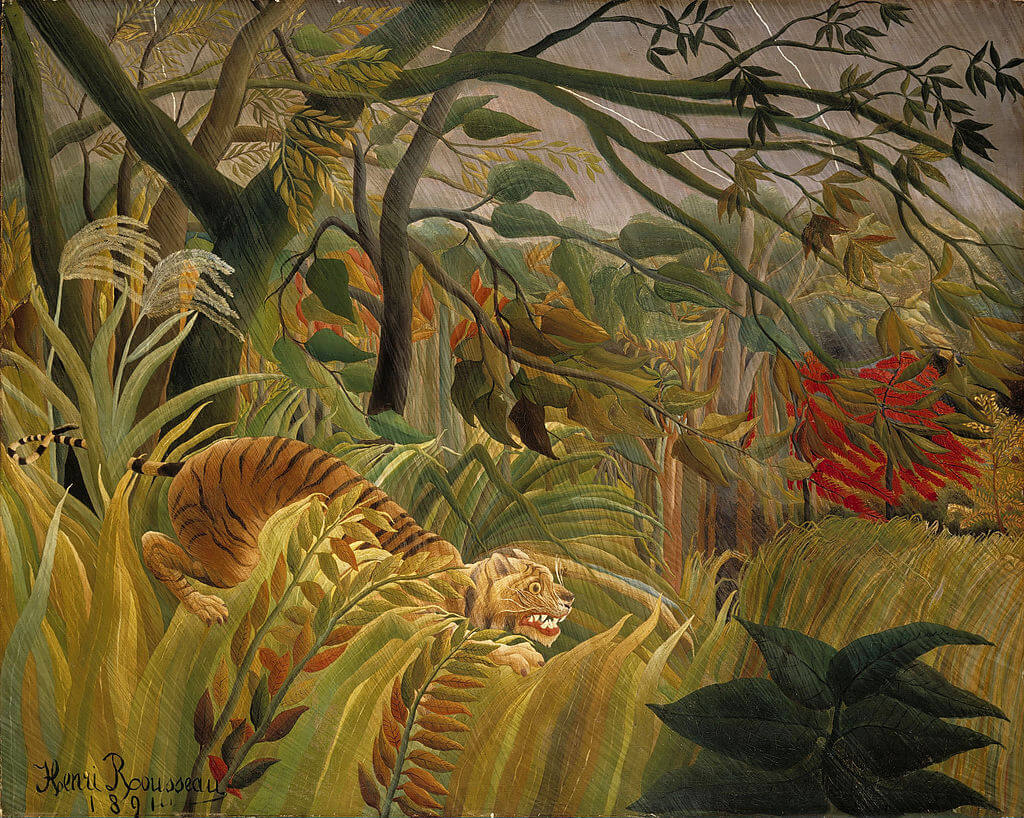
What to Write On Our Sticky Notes — Finding the Right Values
But yeah. Okay. We do need to walk in a direction we prefer. Fine. What is this direction and what are these values? How would we know if we are not running behind others’ targets?
While growing up, we get wired in our culture2. Our moody parents, crowded city, sultry country, muddy lanes, friends and house help, neighbors and siblings, pet cows, guava trees, kitschy news, books at home, languages we speak, rare picnics, daily life, major and minor events, rainy days, mangoes we eat — all this makes us who we are as we go along.
Our values and beliefs and what we do hardly remain unbiased. Our present traits have not been driven out of our core pure and nascent like a calf from the stomach of a cow. We pick up things as we learn to crawl and slowly develop our priorities, idiosyncrasies, likings, disliking, fears, and ambitions3.
Out of the cornucopia of ideas we carry every day, we have to assess our values — our sticky notes — carefully. These sticky notes are our pain points — things we are ready to strive for. They will decide how happy we become in life.
Values are better than goals. Because if we choose specific goals we may never be happy when we achieve them.
What makes us happy today may not make us happy tomorrow4. We change. Our likings and passions evolve and the only thing that may remain is our principle ideas.
How would you ensure your sticky notes are well-suited to you? Are there some universal values you can adopt today that may help you live happily, healthily, and purposefully tomorrow?
To judge your values see if they are only self-driven or are they also benefiting others around you. See if these values are attached to the prestige or the cause. See if these make you happy and fulfilled at least in the present. Weigh your values on the balance of your vision, learning, and experience. Focus on the why rather than the how. And be wary of your own confidence because we are quick to copy someone else’s sticky notes.
One day we see Amitabh Bachchan being worshipped in our village. Now we desire to become a superstar. But do we really want to become an actor and artist or we only want the prestige dripping from the celebrity’s paraphernalia? If later, we will most probably end up unhappy because we are not only disillusioned about our needs but are also depending on external acceptance and authority.
When I thought of becoming a full-time writer, I didn’t know the kind of life I would lead. I didn’t know many writers to ask for guidance. So I assumed the worst. I believed I would live a solitary life with few friends, a corner with a view of the world, endless lonely hours of writing, money and recognition would come hard, and constant engagement with emotions of grief, failure, fury, and jealousy would keep me miserable.
I would have to think a lot and write a lot. I might end up with my head in the sand, to say the worst.
But I was ready to ride even the worst scenario. Because my life was really pathetic at the time and I desperately wanted an out. Working hard to do what I imagined myself doing seemed more important than living comfortably.
I decided to bear the misery, loneliness, and limitations of being a writer along with all the upheavals the journey would bring along. And so far I haven’t taken a better decision in my life.
But my idea could have turned against me too. What if I had started regretting these long hours when I sit and stare at my computer with never-ending writing to be done, piling administrative tasks, unpaid bills, rejection from family, and no one to relate my journey with?
I know many fellow bloggers and aspirant writers who have gone through these heartbreaks. Some of them even got panic attacks. Eventually, those who couldn’t bear the brunt left, and that’s okay. As long as we can return, we are fine.
I never thought of earning millions with writing or publishing so many books or seeing so many countries. My goals are (mostly) worth and idea-driven. I should be able to make a decent living with my words, I will focus on writing well (books will get published on their own if they have to), and I want to travel deep rather than ticking off places.
After falling many times, I have learned to ignore external validation and prestige and run after real work and learning.
Start by asking yourselves the hard life questions. Put your ideas in scorching furnaces. Keep them burning hot all the time to see if they evaporate in the face of the slightest setback or they stay precipitated. Whatever remains after filtration is yours. Let this process run incessantly.
Look at the world’s values with your own sieve of thoughts and principles. You are bound to find your balance.

How to Make a Self Development Plan?
Every other pin on Pinterest, every Google article, and every Google Discover clip would ask you to make a self improvement plan.
Start by understanding personal growth. Now be frank about what do you mean when you say you want to become a better you. You have to ask yourself what matters to you. Where do you see yourself? What are you ready to pay for, work for, strive for, cry for, fail for, fall for, and get up for?
Is it the color of your clothes you wish to change or the way you talk to strangers? Is it what you say to your house help when she breaks your vase or how you smile at your host in Manali? Do you care about getting fit or are you looking to get 1000 comments on Instagram? Did you ever care about your cat or when others said you have to bring her with you to New Zealand you suddenly wondered you should? Does traveling bring you joy or do you want to be able to say I have seen it all? Is money the end goal or learning? Do you want to be there for your friends too or are just scared of loneliness? New year’s resolutions are good but will you be able to try even when you fail repeatedly?
Form the questions without fear and answer them honestly.
Feeling either way is okay, but with awareness you can attach the right value to the right cause. And this worth will decide how sad and disheveled or happy and calm you are.
Pen down your ideas on your sticky notes and see from there.
And when it seems you are almost there, you may still be far. Such is life.
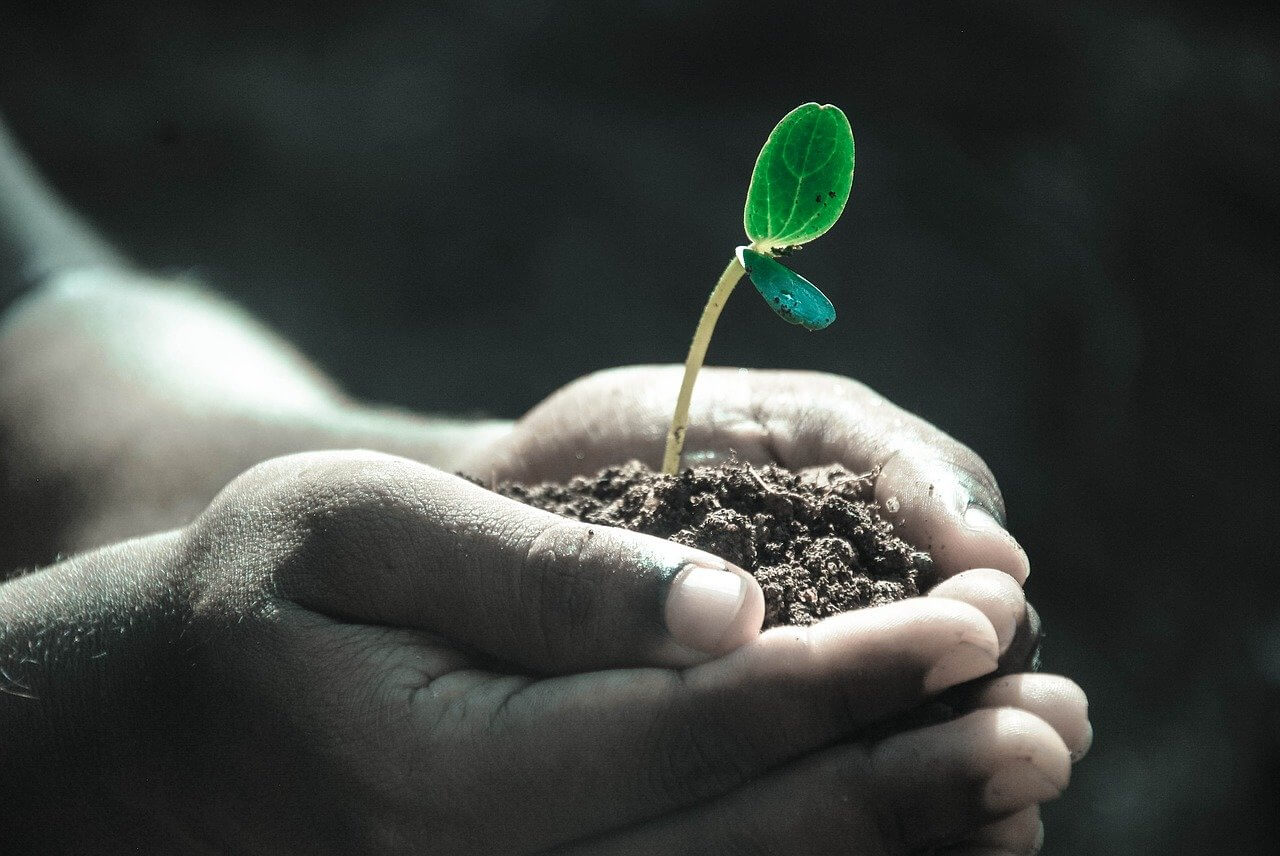
Below are some of the continuous self improvement ideas written on my sticky notes. I write extensively on these topics and you can read related articles section-wise.
Health and Well-Being
We have lost it all if we have lost our health.
-
A Green Affair in Siliguri–Picking Tomatoes and Turnips
-
You Judge Me. I Judge You. And Then What?
-
5 Tried and Trusted Online Organic Stores in Bangalore (Farm+Homemade)
-
A Definite Guide to Purposeful, Healthy, and Mindful Living
-
Life Lessons to Excel in Your 30s
-
Do You Want to Sleep in a Storm? Read This
-
Why You Should Break The Routine, Sometimes
-
Important Things I Have Learned So Far
-
Yoga in Dharamshala – With an Introduction to Yoga in India
-
Why I Became a Part-Time Chef Even Though I had a Full-Time Software Job
Stable and Healthy Interpersonal Relationships
I once thought I’m a loner. Then I felt I was a social person. Now I perceive myself as someone who gets energized by being with people but only between intervals of her alone time. When I’m around people — both close ones and strangers — I engage and chirp. If interactions are done sensibly, I feel loved and get a sense of belonging.
Humans are social animals. So much so they regulate each other’s body budgets — how we feel, whether we ascertain ourselves to be in the fight or flight mode, our happiness, calmness, and all.
Below you can find all the specific pieces I have written on relationships. But all my writing is imbued with a focus on people and how to be with each other. Enjoy.
-
The Big Lessons a Little Family in Pondicherry Taught Me
-
3 Secrets of a Happy Relationship I’m Learning the Hard Way
-
Why Getting Dumped Could Be Good For You (Real Story)
-
47 Bright Ways to Make Someone Happy (or Smile)
-
How to Approach a Guy — Women, Take Control
-
How to Approach Women – Tips For Men
-
Why Do We Need a Life Partner and Where to Find One
My idea behind starting this category was to encourage people to go out more often and ask each other out. Rather than swiping left-right on Tinder, meeting someone physically is a more natural way to start a relationship.
I have to write a lot more here but the idea is to emphasize that we can all find a partner through even very simple ways.
-
3 Secrets of a Happy Relationship I’m Learning the Hard Way
-
Why Getting Dumped Could Be Good For You (Real Story)
-
The Pandemic Chronicles – The Acceptance
-
Golden Highlights of 2018 – A Year of Writing, Love, and Nomadness
-
How to Approach a Guy — Women, Take Control
-
How to Approach Women – Tips For Men
-
Why Do We Need a Life Partner and Where to Find One
Emotional Intelligence
-
My Best Travel Books of All Time
-
Lessons Learned in 2022
-
You Judge Me. I Judge You. And Then What?
-
3 Secrets of a Happy Relationship I’m Learning the Hard Way
-
What Makes you Fly? – Klaus Nomi Singing My Heart Opens to Your Voice
-
Why Getting Dumped Could Be Good For You (Real Story)
-
42 Handpicked Marcel Proust Quotes On Habits, Love, Desire, Misery, Memory, and Little Joys
-
43 Observations on Human Beings From Proust (Swann’s Way: In Search of Lost Time Vol 1)
-
Virginia Woolf’s A Room of One’s Own — A Meditation on Writing and Life
-
You Aren’t the Emotional Fool You Think You Are
-
A Definite Guide to Purposeful, Healthy, and Mindful Living
-
Best Non-Fiction Books I Read in 2020
-
21 Life-Changing Books You Shouldn’t Miss [They Changed Me]
-
Life Lessons to Excel in Your 30s
-
Why You Should Break The Routine, Sometimes
-
47 Bright Ways to Make Someone Happy (or Smile)
-
The Pandemic Chronicles – The Acceptance
-
The Pandemic Chronicles – The Beginning
-
77 Deep Questions About Life [And My Answers]
-
Travel Inspires Change and One Small Change Can Transform Our Life
-
Deep Quotes About Life I Couldn’t Help Sharing
-
Important Things I Have Learned So Far
-
Coronavirus is Not At Fault – You Are As Happy As You Want To Be
-
How My Chilean Host Mother Reciprocated to Cruelty With Kindness
-
On What’s Important – With The Little Prince of Antoine de Saint-Exupéry
-
Let Life Flow Freely – She Knows Her Course Better than You Do
-
An Open Letter to My Mind
-
How to Turn a Bad Day Around
-
Friedrich Nietzsche’s Path to Becoming Who We Are
-
14 Things You Can Care Less About
-
What is Mindfulness and How to Become Mindful?
-
What is the Meaning of Life
-
How to Manipulate Consciousness – To Create Our Own Reality
Focusing on Fun
Fun was once a thing to do but now fun is suffused in my life as oxygen in our air. Else, what’s the point?
-
A Joyful Meander Over a Must-Do Himalayan Hike: Finding Our Own Pleasures
-
How to Sort Through the Mundane For Creative Living
-
How to Find Your Passions – Playing Devil’s Advocate
-
Why You Should Break The Routine, Sometimes
-
Creative Routine and Rituals – How to Dream and Create Consistently
-
Why You Shouldn’t Be Okay To Be Bored With Work
-
Are You Failing Because You Aren’t Having Fun? Inspired By Ruskin Bond
-
Highs and Lows of 2019 – Travel Blogging, Himalayan Peaks, and Personal Well-Being
-
Myths About Nomadic Life I Shouldn’t Break
-
I Am Going Nomadic
-
On What’s Important – With The Little Prince of Antoine de Saint-Exupéry
-
Let Life Flow Freely – She Knows Her Course Better than You Do
Rising From Failures
Failures are just steps on the way to success. We shouldn’t be afraid of them but on every new journey, we should prepare ourselves to hit hurdles.
Learning Never Stops
We will be like a stagnant pool of water if learning stops.
-
A Green Affair in Siliguri–Picking Tomatoes and Turnips
-
My Best Travel Books of All Time
-
A Joyful Meander Over a Must-Do Himalayan Hike: Finding Our Own Pleasures
-
The Big Lessons a Little Family in Pondicherry Taught Me
-
Lessons Learned in 2022
-
You Judge Me. I Judge You. And Then What?
-
33 Things I Would Tell My Younger Self
-
Cultural Differences, a Friend For Life, and Diwali in Chile
-
Why Getting Dumped Could Be Good For You (Real Story)
-
42 Handpicked Marcel Proust Quotes On Habits, Love, Desire, Misery, Memory, and Little Joys
-
43 Observations on Human Beings From Proust (Swann’s Way: In Search of Lost Time Vol 1)
-
Virginia Woolf’s A Room of One’s Own — A Meditation on Writing and Life
-
You Aren’t the Emotional Fool You Think You Are
-
A Definite Guide to Purposeful, Healthy, and Mindful Living
-
Best Non-Fiction Books I Read in 2020
-
Best Fiction Books I Read in 2020
-
21 Life-Changing Books You Shouldn’t Miss [They Changed Me]
-
Life Lessons to Excel in Your 30s
-
Why You Should Break The Routine, Sometimes
-
77 Deep Questions About Life [And My Answers]
-
Travel Inspires Change and One Small Change Can Transform Our Life
-
Deep Quotes About Life I Couldn’t Help Sharing
-
Important Things I Have Learned So Far
-
Are You Failing Because You Aren’t Having Fun? Inspired By Ruskin Bond
-
Highs and Lows of 2019 – Travel Blogging, Himalayan Peaks, and Personal Well-Being
-
How I Survived the Villarrica Volcano Hike
-
On What’s Important – With The Little Prince of Antoine de Saint-Exupéry
-
Let Life Flow Freely – She Knows Her Course Better than You Do
-
How to Achieve Your Goals – 12 Principles I’ve Followed Since I’m 15
-
Learnings From One–Year of Sincere Writing and Blogging
-
Robbed on a Running Bus in Santiago, Chile
-
Elon Musk – Twelve Things We Should Learn from the Hulk-Like Tycoon
-
Cracking The Art of Learning with Josh Waitzkin
-
Revenge is Fatal
-
What Travel Has Taught Me – About the World and Myself
-
Why is the Process of Learning More Important Than the Result
-
Courage
-
Nature
-
How to Turn a Bad Day Around
-
Friedrich Nietzsche’s Path to Becoming Who We Are
-
20 Life Lessons We Can Learn From Benjamin Franklin
-
Why I Travel and Live a Nomadic Life
-
30 Life Lessons I Learned in My 20’s
Building a Desirable Career
Once, I desired long-arduous hours of toiling away for something I care about. Like now, at 11 pm on a Thursday, when I haven’t stopped writing for the past 10 hours, with hiking and eating breaks, of course. And I’m still excited to pick up this piece tomorrow again and get at it.
I have written a lot on building a career of choice, so dig deep.
-
How to Find Your Passions – Playing Devil’s Advocate
-
Don’t Feel Like Working? Read This
-
Creative Routine and Rituals – How to Dream and Create Consistently
-
Ditch Passion, Follow Curiosity – Build a Career You Love
-
Thinking of a Career Change at 30? I Quit My Job, Too
-
Why You Shouldn’t Be Okay To Be Bored With Work
-
Are You Failing Because You Aren’t Having Fun? Inspired By Ruskin Bond
Living Fully, Beyond Fears and Conventions
While growing up I got scared of many things and ideas. Later I realized I cannot possibly go on living by fearing simple activities and ways. Let’s push past the fears because that is how it was meant to be always.
-
Two Himalayan Girls Reminded Me of My Hard-Earned Freedom
-
A Joyful Meander Over a Must-Do Himalayan Hike: Finding Our Own Pleasures
-
You Judge Me. I Judge You. And Then What?
-
How to Sort Through the Mundane For Creative Living
-
An Old Himalayan Woman’s Routine Showed Me How Hard Is Village Life in India – Lessons On Resilience and Repetition
-
Cultural Differences, a Friend For Life, and Diwali in Chile
-
We Dared to Hike to Shikari Devi Temple (Mandi Himachal) On Our Own
-
42 Handpicked Marcel Proust Quotes On Habits, Love, Desire, Misery, Memory, and Little Joys
-
43 Observations on Human Beings From Proust (Swann’s Way: In Search of Lost Time Vol 1)
-
Life Lessons to Excel in Your 30s
-
Do You Want to Sleep in a Storm? Read This
-
Why You Should Break The Routine, Sometimes
-
Creative Routine and Rituals – How to Dream and Create Consistently
-
Travel Inspires Change and One Small Change Can Transform Our Life
-
Thinking of a Career Change at 30? I Quit My Job, Too
-
Why You Shouldn’t Be Okay To Be Bored With Work
-
Are You Failing Because You Aren’t Having Fun? Inspired By Ruskin Bond
-
Fight For Your Dreams – Hold On Even When Your Hands Bleed
-
How I Survived the Villarrica Volcano Hike
-
On What’s Important – With The Little Prince of Antoine de Saint-Exupéry
-
How to Achieve Your Goals – 12 Principles I’ve Followed Since I’m 15
-
Why I Became a Part-Time Chef Even Though I had a Full-Time Software Job
-
Elon Musk – Twelve Things We Should Learn from the Hulk-Like Tycoon
-
Why is the Process of Learning More Important Than the Result
-
Friedrich Nietzsche’s Path to Becoming Who We Are
-
14 Things You Can Care Less About
-
Why and How to Start Over in Life (+ Real Examples)
-
What is Mindfulness and How to Become Mindful?
-
Why I Travel and Live a Nomadic Life
Sustainable Daily Habits
In the absence of habitual behavior, we would tire ourselves out by breaking our heads on the same models daily. Sustainable daily habits are pivotal to achieve anything.
-
A Green Affair in Siliguri–Picking Tomatoes and Turnips
-
You Judge Me. I Judge You. And Then What?
-
A Definite Guide to Purposeful, Healthy, and Mindful Living
-
Do You Want to Sleep in a Storm? Read This
-
47 Bright Ways to Make Someone Happy (or Smile)
-
Creative Routine and Rituals – How to Dream and Create Consistently
-
30 Practical Tips for Working From Home
-
23 Small, Daily Habits to Build a Better Life
-
What Are Habits – Your Answer to Willpower
-
27 Writing Tips for Beginner Writers [All You Need]
-
Cracking The Art of Learning with Josh Waitzkin
-
How to Write Every Day – My Journey As a Writer
During the Pandemic
Blog Updates and Writing Growth
-
7 Scintillating Years of On My Canvas
-
6 Years of On My Canvas
-
5 Years of On My Canvas: What I’ve Learned
-
Awareness, Confidence, and Non-Reaction: My Keys to 2022
-
Best Articles of On My Canvas From the Year 2020-2021
-
On My Canvas Turns Four – Big News and Five Lessons Inside
-
Highs and Lows of the Year 2020 – 2021 Plans Included
-
Three Thriving Years of On My Canvas – And Future Plans
-
Highs and Lows of 2019 – Travel Blogging, Himalayan Peaks, and Personal Well-Being
-
New to Blogging? My 11 Hands-On Tips for Bloggers
-
Golden Highlights of 2018 – A Year of Writing, Love, and Nomadness
-
Myths About Nomadic Life I Shouldn’t Break
-
Learnings From One–Year of Sincere Writing and Blogging
Footnotes
0 – “The macro structure of your brain is largely predetermined, but the microwiring is not. As a consequence, past experience helps determine your future experiences and perceptions. Neuroconstruction explains how human infants are born without the ability to recognize a face but can develop that capacity within the first few days after birth. It also explains how early cultural experiences — for instance, how often your caregivers were in physical contact with you, and whether you slept alone in a crib or in a family bed — differentially shape the wiring of the brain.” [Back]
Barrett, Lisa Feldman. How Emotions Are Made: The Secret Life of the Brain (pp. 34-35). Pan Macmillan. Kindle Edition.
1 – How Emotions Are Made: The Secret Life of The Brain by Lisa Feldman Barrett is an exceptional book on how our brains work. All the references to the workings of our mind are taken from there, not necessarily quoted, but interpreted. [Back]
2 – “On the whole, the theory of constructed emotion is a biologically informed, psychological explanation of who you are as a human being. It takes into account both evolution and culture. You are born with some brain wiring as determined by your genes, but the environment can turn some genes on and off, allowing your brain to wire itself to your experiences. Your brain is shaped by the realities of the world that you find yourself in, including the social world made by agreement among people. Your mind is a grand collaboration that you have no awareness of.” [Back]
Barrett, Lisa Feldman. How Emotions Are Made: The Secret Life of the Brain (p. 157)
3. “Your brain’s colossal, ongoing storm of predictions and corrections can be thought of as billions of tiny droplets. Each little drop represents a certain wiring arrangement that I’ll call a prediction loop. This arrangement holds at many levels throughout your entire brain. Neurons participate in prediction loops with other neurons. Brain regions participate in prediction loops with other regions. Your multitudes of prediction loops run in a massive parallel process that continues nonstop for your whole life, creating the sights, sounds, smells, tastes, and touches that make up your experiences and dictate your actions.” [Back]
Barrett, Lisa Feldman. How Emotions Are Made: The Secret Life of the Brain (pp. 62-63). Pan Macmillan. Kindle Edition.
4 – “It is only natural that we should imagine the future and then consider how doing so makes us feel, but because our brains are hell-bent on responding to current events, we mistakenly conclude that we will feel tomorrow as we feel today.” [Back]
Gilbert, Daniel. Stumbling on Happiness (p. 138). HarperCollins Publishers. Kindle Edition.
Thank you for reading so far. I hope you’ve enjoyed these tips on personal development. I wish they encourage you to face your fears and think of your purpose.
Here are all the articles on personal growth I have written so far. Enjoy.
-

7 Scintillating Years of On My Canvas
-
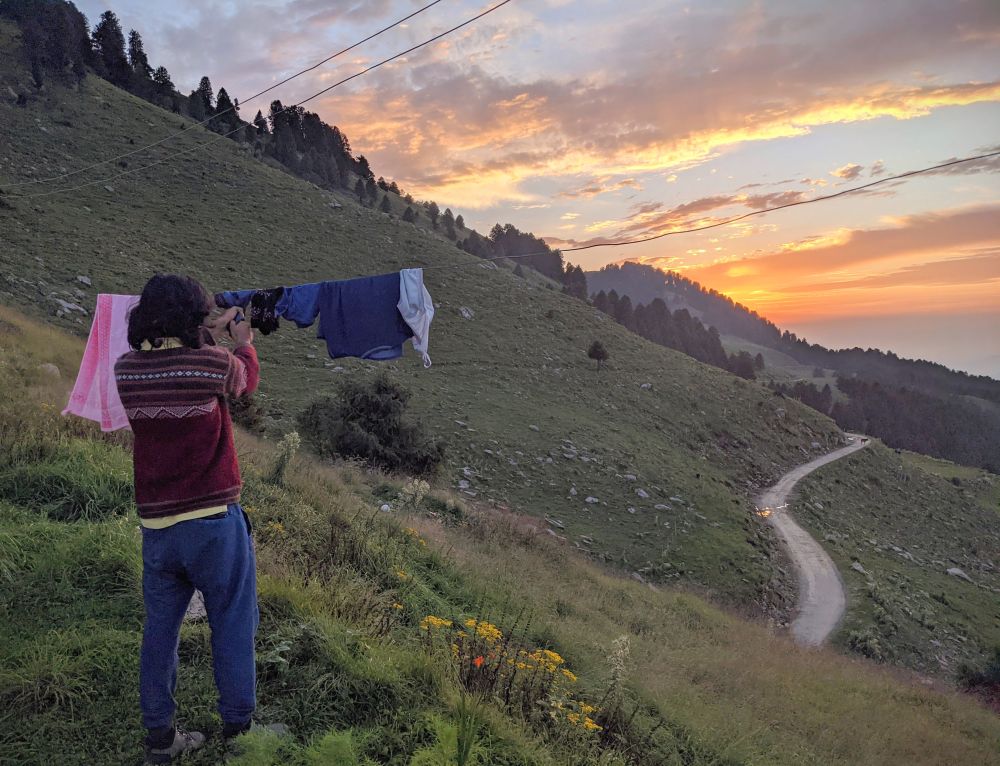
3 Years on the Road: Behind the Scenes
-

6 Years of On My Canvas
-
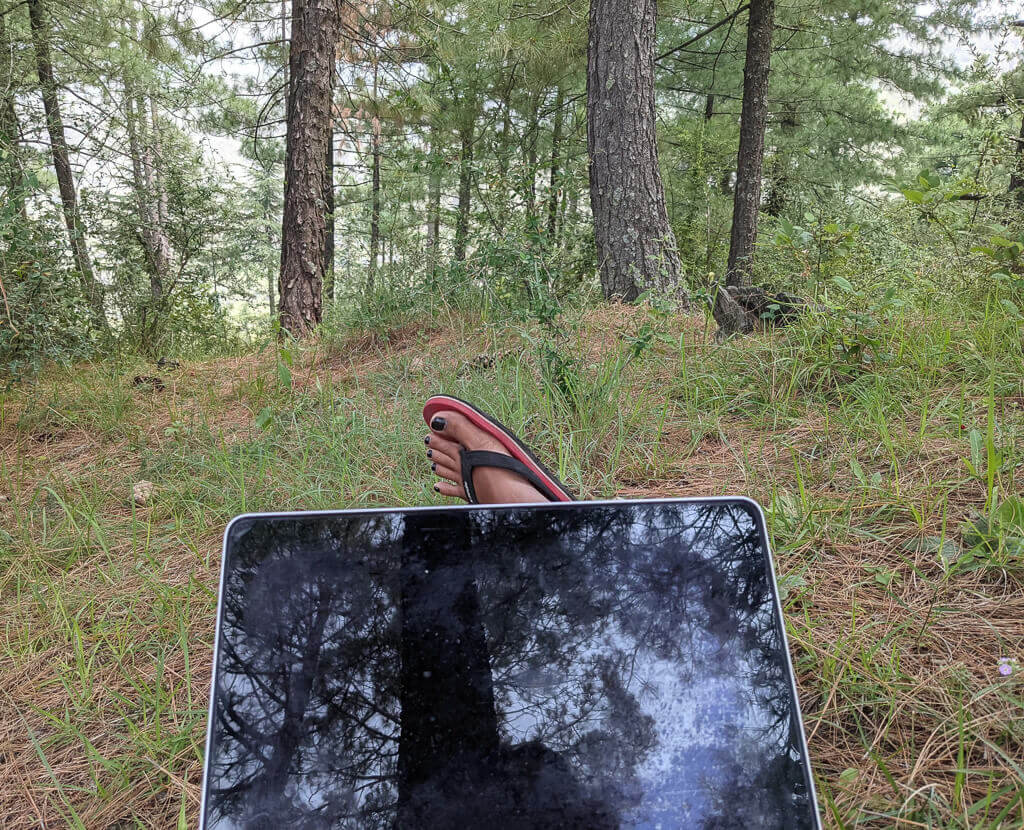
Two Himalayan Girls Reminded Me of My Hard-Earned Freedom
-

A Joyful Meander Over a Must-Do Himalayan Hike: Finding Our Own Pleasures
-

The Big Lessons a Little Family in Pondicherry Taught Me
-
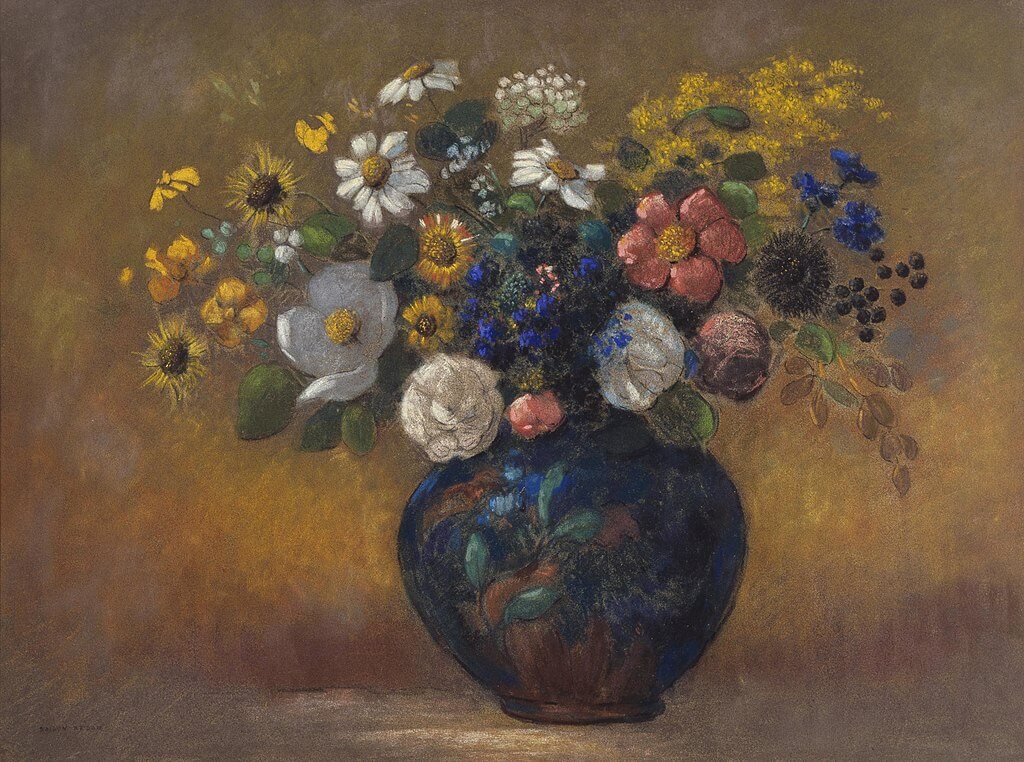
Lessons Learned in 2022
-

5 Years of On My Canvas: What I’ve Learned
-

You Judge Me. I Judge You. And Then What?
Did you like my ideas for self improvement? Do let me know in the comment.
Feature Image Courtesy: Martin Johnson Heade, Public domain, via Wikimedia Commons
*****
My much-awaited travel memoir
Journeys Beyond and Within…
is here!
In my usual self-deprecating, vivid narrative style (that you love so much, ahem), I have put out my most unusual and challenging adventures. Embarrassingly honest, witty, and introspective, the book will entertain you if not also inspire you to travel, rediscover home, and leap over the boundaries.
Grab your copy now!
Ebook, paperback, and hardcase available on Amazon worldwide. Make some ice tea and get reading 🙂
*****
*****
Want similar inspiration and ideas in your inbox? Subscribe to my free weekly newsletter "Looking Inwards"!

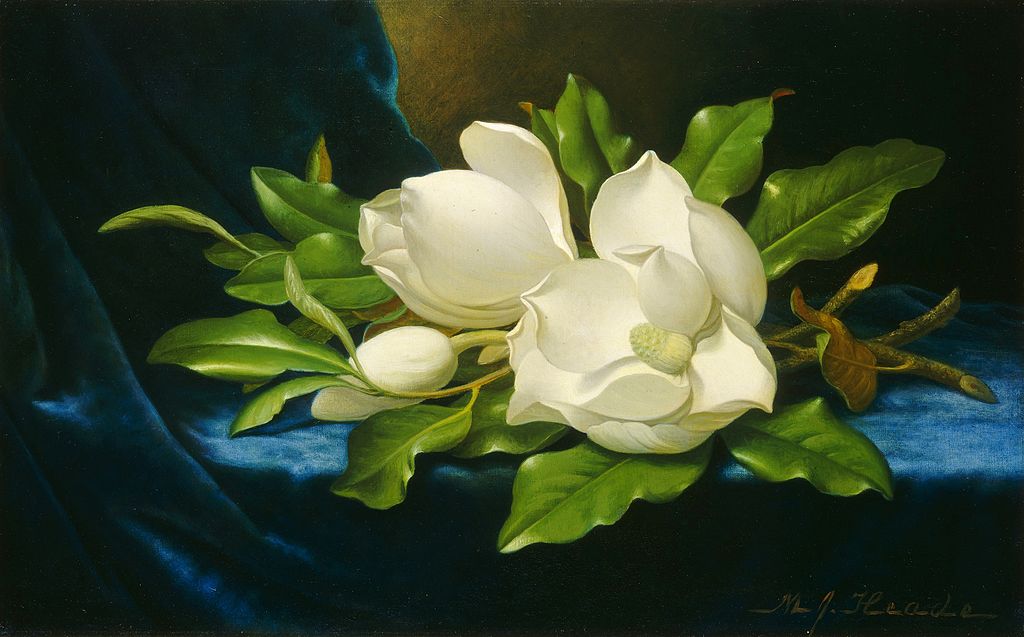
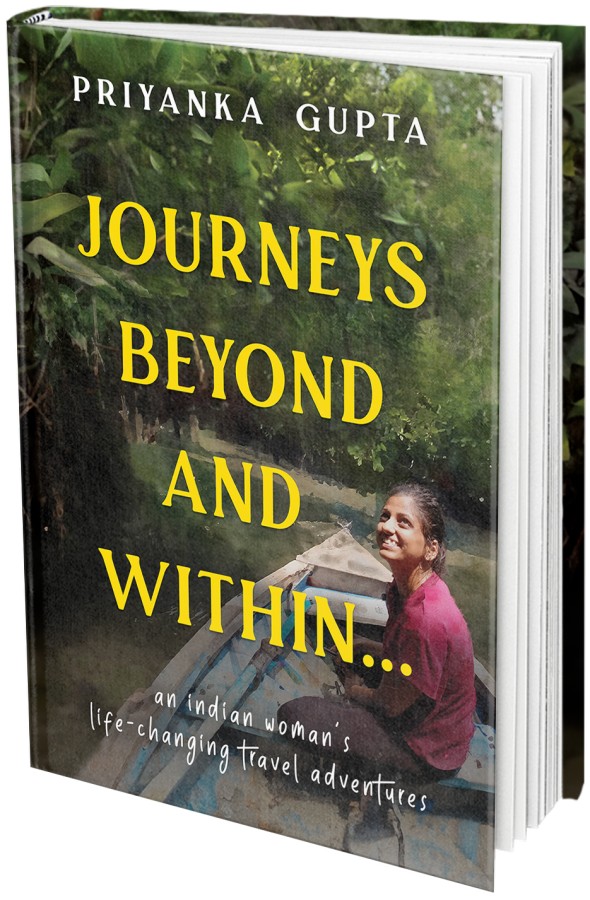
hi.
enjoyed reading through some of your blogs… landed by chance while browsing through for info on trekking to bramhagiri, coorg dist
Great writing…and for living your life on your terms
thank you. Hope you keep reading 🙂
Personal growth and happiness are related but separate concepts. Personal growth refers to the process of developing and improving oneself, both physically and mentally. Happiness, on the other hand, refers to a state of well-being and contentment.
I just want to say thank you so much for such great content. I found your blog not long ago and became a fan right away! Greetings from Ottawa